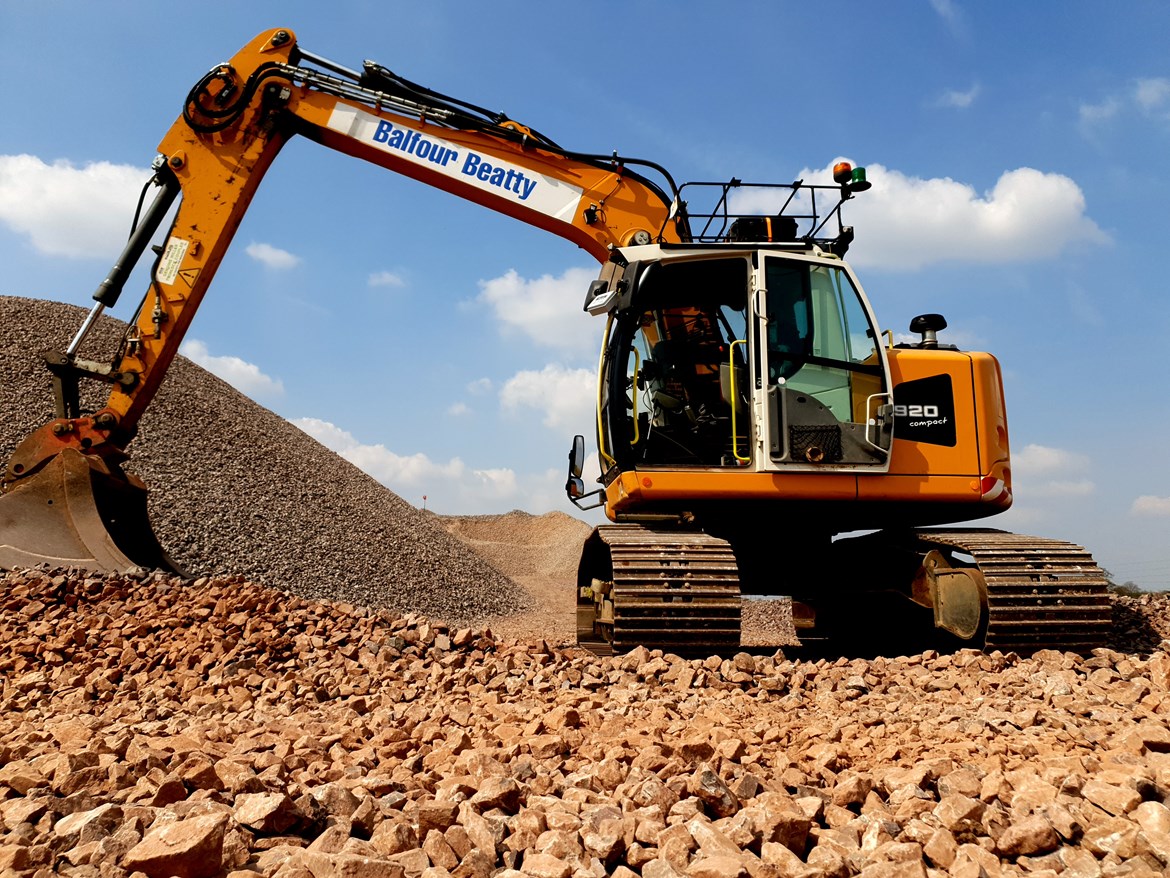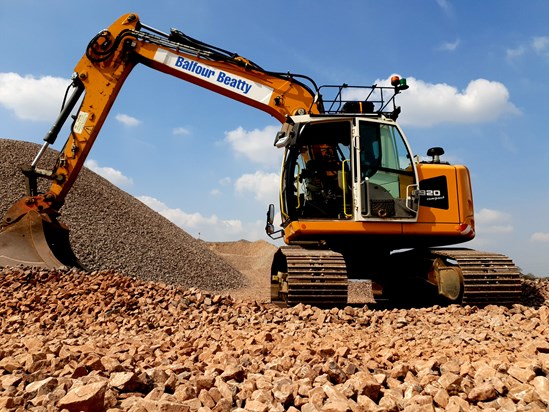The trial, part of HS2’s Innovation programme, was carried out in partnership with Imperial College London and Balfour Beatty VINCI (BBV) at an HS2 construction site near Coventry in April 2021. It measured tail-pipe emissions to determine the potential emission benefits of using alternative fuels when compared to red diesel.
The ‘real-world’ emission measurements tests were carried out on two 20-tonne excavators - a Liebherr R920 compact excavator (Stage IIIB) and a Komatsu PC210 excavator (Stage IV). The fuels tested included standard red diesel (EN590) to provide a baseline for comparative purposes, red diesel with F18 fuel additive and two biofuels - hydrogenated vegetable oil (HVO) and Enhanced HVO.
While the results showed limited air quality benefits when compared to red diesel, the trial demonstrated the potential carbon reduction opportunities through the sustainable sourcing of alternative fuels.
Both machines used during the trial had exhaust gas after-treatment technology installed to reduce nitrogen dioxide and particle emissions. As such the study also recognises that older machines with no after-treatment technology may have a greater potential for reducing emissions through the use of alternative fuels.
Neil Wait, Head of Environmental Sciences at HS2 Ltd said:
“HS2’s extensive innovation programme is aimed at supporting the transition from diesel to zero emissions by developing alternative technologies. On-site trials provide a real-world testing environment and are important to inform future solutions. While this testing showed limited air quality benefits from the use of biofuels, it’s clear that they are part of the construction industry’s transition to low carbon solutions, with potential CO2 savings that can be achieved through the sustainable sourcing of raw materials used in the fuels.
“The research findings support steps taken by HS2 contractors to exploit the potential of biofuels to reduce carbon impacts on our construction sites. We continue to work closely with our supply chain and research organisations to develop far-reaching sustainable alternatives which will change the way the construction industry operates and support Britain’s move to a zero-carbon future. These include fully electric solutions, solar and wind power, hydrogen technologies, retrofits on older machines, along with increasing delivery of materials by rail.”
Daniel Marsh, Programme Manager, Centre for Low Emission Construction, School of Public Health at Imperial College London said:
“The results from this trial highlight how important it is that we continue to independently test and evaluate existing and emerging low emission fuels and technologies to produce scientific evidence to inform and encourage the uptake of low emission approaches across HS2, and the wider construction industry. This will support accelerated decarbonisation programmes to meet stringent carbon targets by 2050 whilst still delivering local air quality benefits.”
Dan Fawcett, Head of Innovation and Transformation at Balfour Beatty VINCI said:
“Decarbonising the construction and infrastructure industry is essential in ensuring that we can build back better and greener. But we must work together, in partnership with our customers and supply chain, to accelerate the research, technologies and innovative solutions that will truly move the dial.
“Alongside HS2, we have had the opportunity to explore numerous projects to reduce the carbon emissions associated with our activities; projects that enable us to test solutions in a real-world environment and realise the benefits as we move towards a Net Zero future.”
The study recommends that where biofuels are being used, they are in line with the Renewable Transport Fuel Obligation (RTFO), which regulates biofuels used for transport and non-road mobile machinery. It also recommends that biofuel providers should be registered with recognised assurance schemes such as the Zemo Partnership Renewable Fuels Assurance Scheme.
A key part of HS2’s carbon reduction programme is to support UK research and development and to build a legacy of knowledge, expertise and new commercial opportunities. A number of HS2 projects are already demonstrating results in lowering emissions and reducing carbon through the introduction of initiatives and solutions such as:
- ‘Clean Air Gas Engine’ funded by Innovate UK and led by OakTec, which replaces diesel power with ultra-low (bio-LPG) emission engines in Advante Welfare units.
- ‘EcoNet’ developed by Invisible Systems, Balfour Beatty and Sunbelt which controls and reduces energy output from key appliances, reducing power demand by 30%.
- Non-Road Mobile Machinery retrofit solution which adds pollution control equipment onto older vehicles as an alternative to replacing the machine or the engine, reducing emissions.
- CESAR Emissions Compliance Verification which is a resilient system to show the EU Stage engine emission class of all construction plant.
- Dust Management reducing impacts associated with works.
- Fully Electric Renewable Energy using solar and wind to power noise and air quality monitors, and solar pods powering sites by combining solar PV, battery storage and a back-up generator.
- Hydrogen Technology trials across sites.
ENDS

